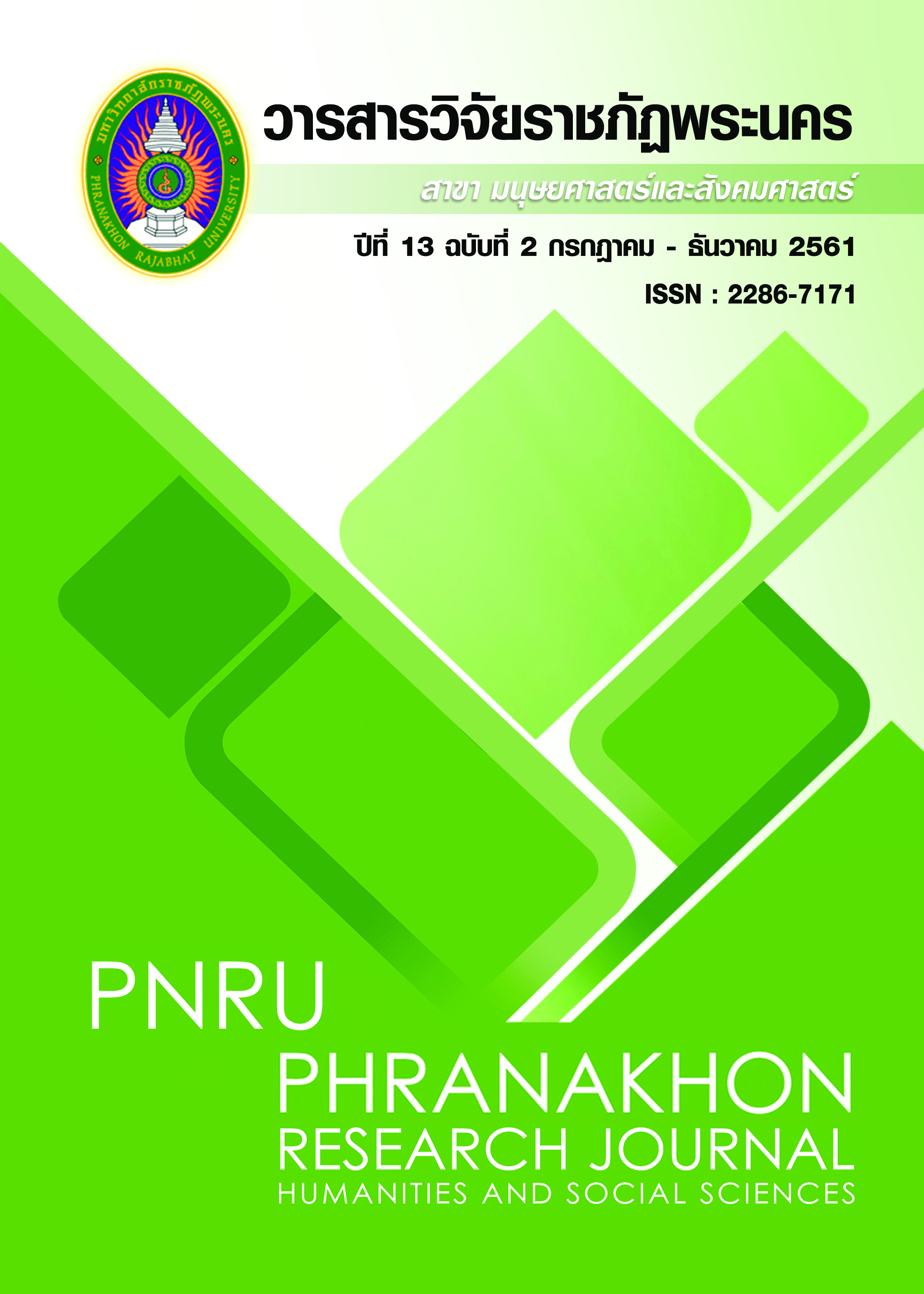FACTORS PREDICTING THE INTENTION TO USE SOCIAL NETWORK OF MONKS IN BANGKOK
Main Article Content
Abstract
This research “Factors Predicting the Intention to Use Social Network of Monks in Bangkok” is aimed to 1) study the relationship between technology self-efficacy, perceived usefulness, perceived ease of use, subjective norms and intention to use social network and 2) to examine factors that predict intention to use social network. Data are collected by survey questionnaires from 400 respondents. Research results are analyzed with frequency, percentage, mean, standard deviation and multiple regression analysis. The results of the study found that technology self-efficacy, perceived usefulness, perceived ease of use and subjective norms had positively correlated with intention to use social network at significant level 0.05. All of four factors predicted intention to use social network at significant level 0.05 and could explain intention to use social network with a percentage of 44.0
Article Details
Each publish articles were copyright by Phranakorn Rajabhat University
Any contents which appeared in each articles in the journal were authors personal opinion. It did not relate to Phranakorn Rajabhat University and other instructors in the university. Each authors would take responsibility on their articles. If there are any mistake, the authors will take responsibility themselves
References
Argarwal, R. & Prasad, J. (1997). The role of innovation characteristics and perceived voluntariness in the acceptance of information technologies. Decision Sciences. 28(3), 557- 582.
Bandura, A. (1977). A self –efficacy: toward a unifying theory of behavioral change. Psychological Review. 84(2), 191-215.
Chau, P.Y.K. (1996). An empirical assessment of a modified technology acceptance model. Journal of Management Information Systems. 13(2), 185‐204.
Davis, F.D. (1989). Perceived usefulness, perceived ease of use and user acceptance of information technology. MIS Quarterly. 13(3), 319-339.
Electronic Transactions Development Agency, Ministry of Information and Communication Technology. (2016). Report on Internet user behavior survey in Thailand 2016. Bangkok. Retrieved January 16,2018, from
https://www.marketingoops.com/reports/behaviors/etda-research-thai-internet-2016/. (in Thai)
Igbaria, M.and Iivari, J. (1995). The effects of self-efficacy on computer usage. International Journal of Management Science 23(6), 587-605.
National Office of Buddhism (2016). Basic Information on Buddhism 2016. Retrieved February 18,2018, from
https://www.onab.go.th/wp-content/uploads/2016/12/onab_primaryinfo60edit.pdf. (in Thai)
Phrommha, N. (2015). Factors influencing the health of consumers in Bangkok. Independent Study, Master of Arts Program in MBA. Bangkok University. (in Thai)
Rattanapreedagul, B. (2011). Influence of attitudes and norms of reference groups on consumers' buying behaviors and online services. Master of Communication Arts and Information. Kasetsart University. (in Thai)
Sasithanakornkaew, S. (2016). The acceptance of social network service of generation y. Suthiparithat Journal. 29 (92), 65-79. (in Thai)
Siriod, P. (2015). Purchasing intent factors that affect purchasing behavior: second hand products purchased in flea market. Master of Technology Management, Institute of Engineering Suranaree University of Technology. (in Thai)
Sonchit, W. (2014). Online purchase intention of goods or service through smartphone. Master of Management, Suranaree University of Technology. (In Thai)
Varasin, P. (2016). Attitude, behavior and the use of social networks of monk in the Bangkok area. Master of Communication Arts and Information. Kasetsart University. (in Thai)

